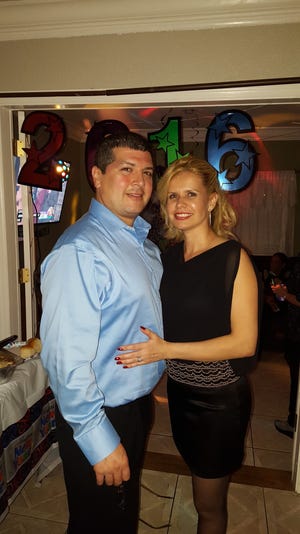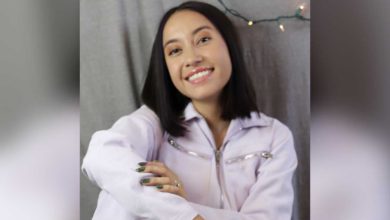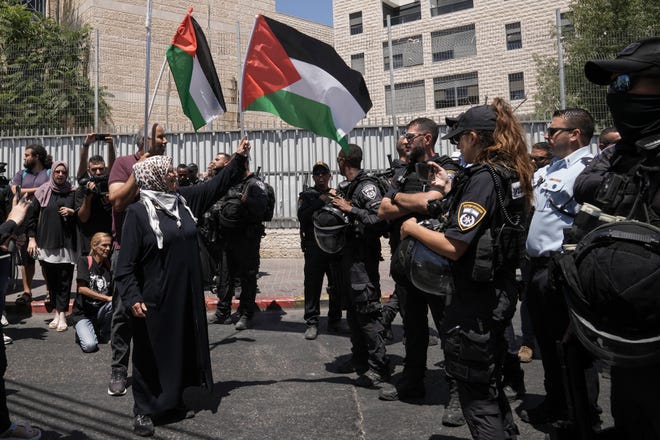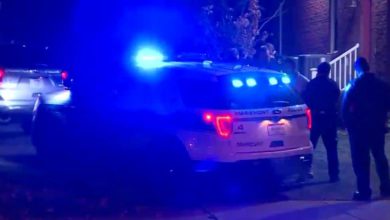
NEW YORK – When Rolando Vizcarra's wife, Diana, died in 2016 from a 9/11-related cancer, it came suddenly and unexpectedly.
"It was just so quick, this cancer that hit her. It's not family-related, just out of nowhere and just took her," Vizcarra said.
So when he learned about a year ago that there was a federal fund he could apply for to offset the hardships of losing his wife and raising two daughters on his own, he knew he had to take advantage of it.
"Not so much for me, but for my kids," Vizcarra said. "They remind me so much of their mom. And at least I get to see them grow up and it be like I get to see her continuing."
The fund is the September 11th Victim Compensation Fund (VCF), which allows survivors and first responders or their families to seek compensation for an injury, illness or death tied to the 9/11 terror attacks.
Vizcarra filed a claim and is awaiting the compensation award, but there could be scores of other families in a situation like his that miss the opportunity to get those benefits, said Lee London, a partner and managing attorney for Barasch & McGarry's VCF practice.
In July, there's a deadline for some to register with the VCF, a process that is separate from filing a claim and ensures the right of a survivor, first responder or family to do so at a later date.
While about 80% of first responders have registered with the fund or are part of the World Trade Center Health Program, a separate federal program that helps with medical monitoring and treatment, only 7% of survivors who lived, worked and attended school in Lower Manhattan in the months after 9/11 have also done so, according to London.

"We're just trying to get the word out there and make sure that if you were in the zone, you register just to protect yourself, God forbid anything happens down the line," London said.
9/11 jeopardized first responders’ health:Nearly 20 years later, COVID-19 brought new risks.
The exposure zone, as defined by the VCF, is the area below Canal Street in Manhattan, and those who can prove their presence at an attack site or in the zone through May 2002 could be eligible for an award through the VCF.
To be sure, the July 29 deadline to register affects only those who before July 29, 2019, were certified to have a 9/11-related illness or who lost a loved one to a 9/11 illness.
If an illness were to develop at a later date, a survivor would have two years from the date it was certified by the World Trade Center Health Program to register. Families of those who have died after July 29, 2019, have two years from their loved one's death to register.
Medical conditions related to the Sept. 11 attacks include acute traumatic injuries, such as burns and head trauma; respiratory illnesses, such as asthma and chronic obstructive pulmonary disease; and more than a dozen cancers, including lung, kidney and skin cancers.
However, London said some health conditions were grandfathered into the World Trade Center Health Program in 2011, and a survivor may not realize their illness has been certified. The families who have lost loved ones could be the most at risk of being unaware of the deadline and possibly losing out on the benefits, he added.
Vizcarra said when he first heard of the VCF, he didn't know it could apply to a situation like his. "I actually thought it was only for firefighters or police officers, for ambulance," he said.
London said that belief has been common, especially before the VCF became more widely publicized and was permanently authorized. "People did not want to take money away from first responders. They didn't want to make claims," he said.
The VCF first opened in 2001 and operated until 2004. The fund served individuals and their families who were harmed or killed in the attacks or were part of the debris removal process.
However, as years pressed on after 9/11, awareness slowly grew about the rise of cancers and other illnesses in survivors and first responders.
The James Zadroga 9/11 Health and Compensation Act reactivated the VCF in 2011, and it was later extended to allow claims to be filed until December 2020.
In 2019, however, the VCF's special master said funding was not available to pay out all current and future claims under its policies, and thus determined payouts would have to be cut.
With lobbying from comedian Jon Stewart and first responders, who gave impassioned speeches to Congress arguing for the government's responsibility to fund fully the VCF, the Permanent Authorization Act extended the claim filing deadline to 2090 and permanently appropriated the money to fund eligible claims.
'Shameful':Jon Stewart, first responders, give emotional testimony before Congress on 9/11 victim fund
'Everybody was there doing something'
There were an estimated 100,000 first responders in the area affected by the toxins through May 2002, and an estimated 400,000 workers, students and residents were also in the exposure zone, most of whom have not registered with the fund, according to Barasch & McGarry.
Restaurant workers could also be among the most at risk of missing out and not registering by July.
Drew Nieporent, a New York restaurateur, was in the exposure zone within a couple days of 9/11 helping to feed first responders. He said there was little worry that the air was toxic despite the dust and smell.
"Everybody was there doing something. Everybody was doing their part. So I didn't see it as anything extraordinary what we were doing, we're just doing our part," Nieporent said.
Years later, Nieporent developed a pain in his side he thought was appendicitis. A scan showed a tumor on his kidney tied to his time in the exposure zone.
"If anybody was going to get sick, I didn't realize it was going to be me," Nieporent said. "But how great (is it) that the government set up this fund."

Turnover is common in the industry and restaurants open in 2001 and 2002 may have since closed before outreach to workers about the VCF could have taken place, London and Nieporent said.
That can complicate the claims process because someone will need to prove their presence in the exposure zone to file the claim, London added.
More than 113,000 survivors and first responders of 9/11 have registered for the VCF, according to the most recent monthly status report on the fund, but data shows it has largely been first responders to reap its benefits. In recent years, survivors have started accounting for more of the claims.
As of April 30, the fund had awarded nearly $8.4 billion with more than 37,500 claims approved for compensation out of the 62,000 submitted. Of those approved, over 25,000 have been from first responders and their families, according to the monthly report from May.
Awards can vary widely depending on the losses an individual or family suffered as a result of their condition and the type of illness they have.
For example, the fund's maximum award amount for non-economic losses due to a cancer is $250,000. Non-cancers are capped at $90,000. Non-economic losses for death can lead to a $250,000 reward, with an additional $100,000 for a spouse and each dependent. For economic losses, the fund has a calculation to determine past and future wages lost as well as other expenses
According to Barasch & McGarry, some of their cases have included awards of more than $3 million for the death of a loved one or a disability due to cancer.
'She was covered in dust'
For Vizcarra, he had a nagging feeling that his wife's cancer was tied to her time in Lower Manhattan. She worked in data entry about a block from the Twin Towers.
Vizcarra remembers dropping his wife off at work that day and then calling relentlessly to try to get through once he saw the news.
When he finally heard from her, she was trying to walk across the Brooklyn Bridge to get back home. Vizcarra hopped in his car to get as close as he could to pick her up.
My father died on Flight 93:Here's how to honor other heroes as 9/11 anniversary nears
"When I got her, she was covered in dust," Vizcarra said, but "she was just grateful that she was across the bridge, that she was home, that she was with family. I guess, in a way, I had some trust, some feeling that she was going to be OK."
It was only a few weeks before she was back at work in the area, Vizcarra said.
It's been over four years since his wife died, and Vizcarra said there is not a day that goes by where he doesn't wish she was still with him.
"There is so much I could say about my wife. She was my best friend. ... It was just meant to be," Vizcarra said. "One thing that we really wished we could have done was stay living happy together, like my grandparents that made it to their 75th anniversary. It was our goal."
Follow USA TODAY's Ryan Miller on Twitter @RyanW_Miller








